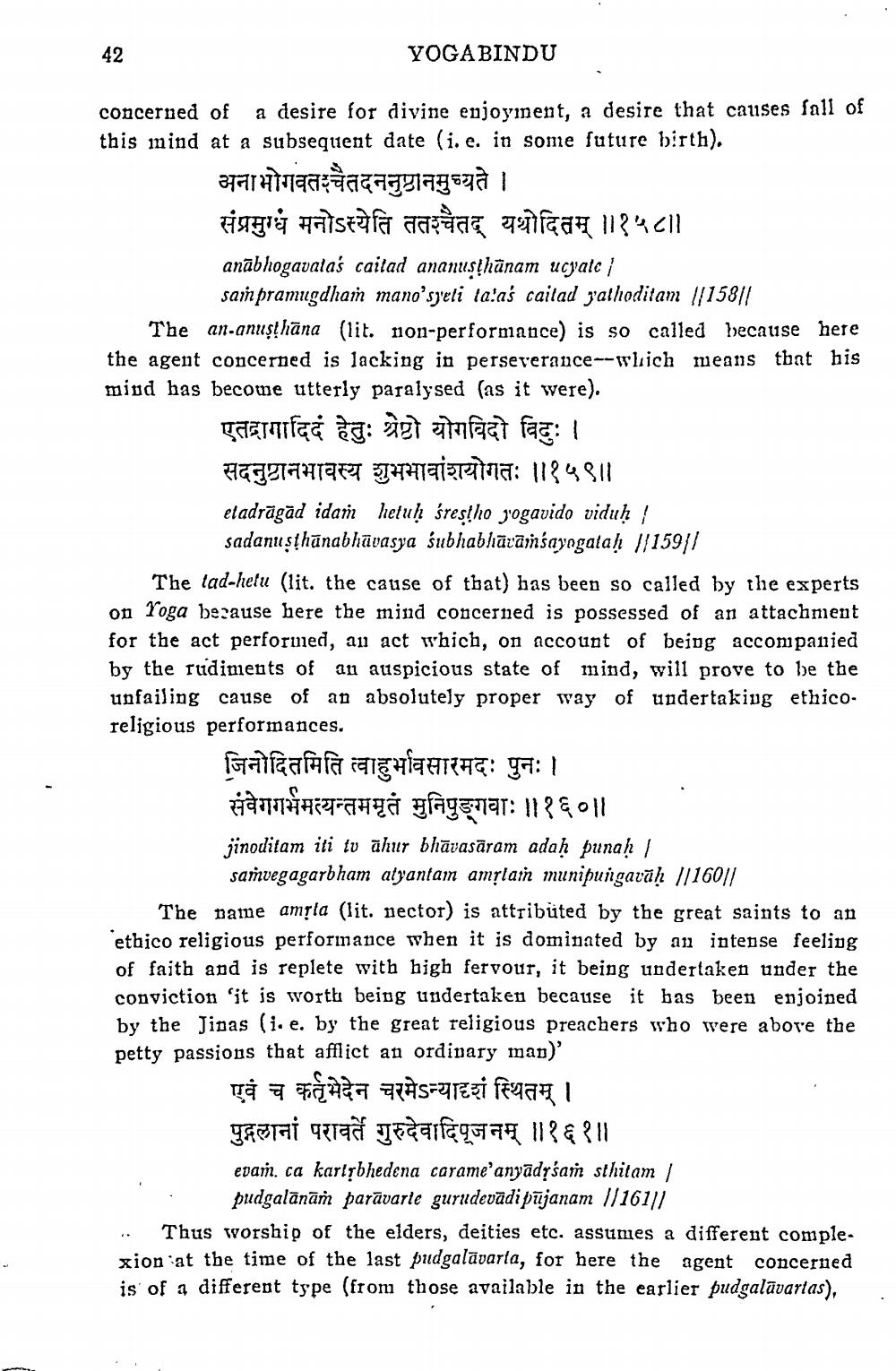________________
42
YOGABINDU
concerned of a desire for divine enjoyinent, a desire that causes fall of this mind at a subsequent date (i. e. in some future birth).
अनाभोगवतश्चैतदननुष्ठानमुच्यते । संप्रमुग्धं मनोऽस्येति ततश्चैतद् यथोदितम् ॥१५८| anābhogavataś cailad ananusthānam ucyatci
sam pramugdham mano'sgeti tałaś caitad pathoditam //1581 The an-gnusthāna (lit. non-performance) is so called because here the agent concerned is lacking in perseverance--which means that his miod has become utterly paralysed (as it were).
एतद्रागादिदं हेतुः श्रेष्ठो योगविदो विदुः । सदनुष्ठानभावस्य शुभभावांशयोगतः ॥१५९।। etadrāgād idam hetuḥ śrestho jogavido viduh !
sadanu sthānabhävasya śubhablārāmśayogalah //15911 The lad-helu (lit. the cause of that) has been so called by the experts on Yoga bezause here the mind concerned is possessed of an attachment for the act performed, au act which, on account of being accompanied by the rudiments of an auspicious state of mind, will prove to be the unfailing cause of an absolutely proper way of undertakiug ethicoreligious performances.
जिनोदितमिति त्वाहुर्भावसारमदः पुनः । संवेगगर्भमत्यन्तममृतं मुनिपुङ्गवाः ॥१६०॥ jinoditam iti tv āhur bhāvasāram adaḥ punaḥ /
samvegagarbham atyantam amȚlain munipungaväh ||160|| The pame amțla (lit. pector) is attributed by the great saints to an ethico religious perforinance when it is dominated by an intense feeling of faith and is replete with high fervour, it being undertaken under the conviction 'it is worth being undertaken because it has been enjoined by the Jinas (i. e. by the great religious preachers who were above the petty passions that afflict an ordinary man)'
एवं च कर्तृभेदेन चरमेऽन्यादृशं स्थितम् । पुद्गलानां परावर्ते गुरुदेवादिपूजनम् ॥१६१॥ evam. ca kartạbhedena carame'anyādņšam sthitam /
pudgalānām parāvarte gurudevādi pājanam 1/16111 ... Thus worship of the elders, deities etc. assumes a different complexion at the time of the last pudgalāvarla, for here the agent concerned is of a different type (from those available in the earlier pudgalāvartas),




